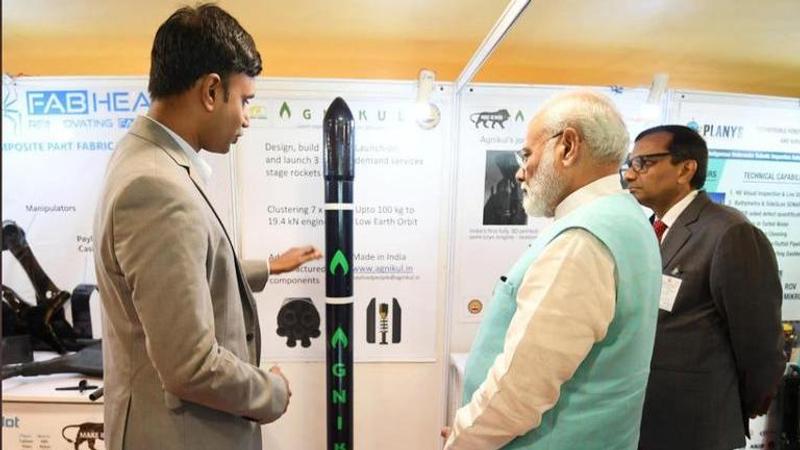Published 13:36 IST, October 1st 2020
India's Agnikul Cosmos signs deal with Alaska Aerospace for test launch of 'Agnibaan'
Chennai start-up Agnikul Cosmos has entered an agreement with Alaska Aerospace Corporation to test launch Indian-made space launch vehicle 'Agnibaan' in 2022

Advertisement
Chennai start-up Agnikul Cosmos has entered an agreement with Alaska Aerospace Corporation to test launch the Indian-made rocket 'Agnibaan'. The tests will be conducted in 2022 in the United States' Alaska from the Pacific Spaceport Complex Alaska (PSCA) on Kodiak Island.
Agnikul Cosmos, the IIT Madras incubated start-up, was launched by Srinath Ravichandran and Moin SPM in 2017. The startup saw the need of small carriers to deliver smaller satellites in Earth's orbit. Normally, the space vehicles carry large satellites weighing approximately 1000 kg and along with them carry the smaller ones too, as extra luggage, into the orbit. But there are no dedicated small space vehicles to carry smaller satellites weighing below 100 kg.
Designed for smaller satellites
The startup therefore has been working on building a launch vehicle to help send out smaller satellites into space with their rockets without having to rely on the launch of other larger satellites. This launch vehicle 'Agnibaan' will be capable of carrying up to 100 kg of payload to low-Earth orbits up to 700 km with a plug-and-play engine configuration. The entire purpose of building Agnibaan is to eliminate the long wait periods for nano and microsatellite launches.
The rocket designed by Agnikul Cosmos will be a two-stage LOX/Kerosene vehicle with a third baby stage, according to the website spacetimes.in.
According to reports, Alaska is chosen for the launch, keeping in mind the customer-centric approach, as there was a requirement of a high altitude location for the launch and it had to be closer to poles for which Alaska suits the requirements. However, when there will be a requirement of launching from near the equator, India's Sriharikota in Andra Pradesh will be an ideal location for launch.
(Image Credit: Twitter | @AgnikulCosmos)
12:58 IST, October 1st 2020



